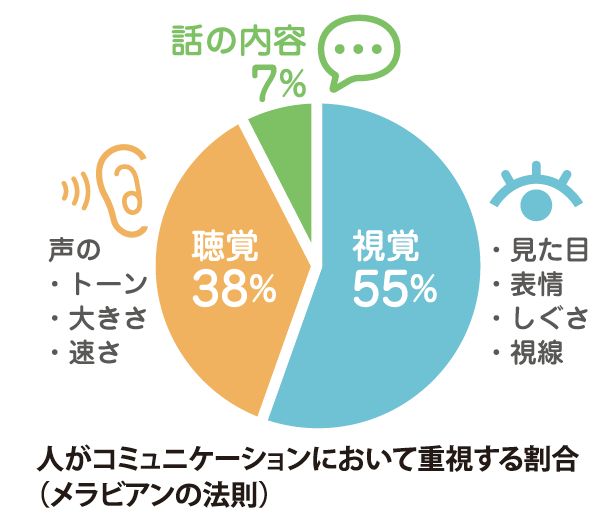ツァイガルニック効果:未完了の呪縛が行動を支配する?
人は、完了した事柄よりも、未完了の事柄の方をよく覚えている - この不思議な現象こそ、ツァイガルニック効果です。
1927年、リトアニア出身の心理学者ブリューマ・ツァイガルニックは、あるカフェで興味深い観察をしました。ウェイターは注文を完璧に覚えていましたが、会計が終わると途端に注文内容を忘れてしまうのです。この観察から、彼女は「未完了の事柄は、完了した事柄よりも記憶に残りやすい」という仮説を立て、実験によって証明しました。
本稿では、ツァイガルニック効果を、行動心理学・行動経済学の観点から紐解き、そのメカニズム、応用例、そして注意点について詳しく解説していきます。
1. ツァイガルニック効果のメカニズム: なぜ未完了は記憶に焼き付くのか?
ツァイガルニック効果は、人間の持つ内的緊張と深く関わっています。
-
ゲシュタルト心理学と「場の理論」
ゲシュタルト心理学では、人間の精神は全体性を求める傾向があるとされます。未完了のタスクは、精神的に「不完全な Gestalt(形態)」を作り出し、これが緊張を生み出すと考えられています。クルト・レヴィンの「場の理論」では、人は目標達成に向けて心理的な「場」を形成し、未達成の目標は「場」に留まり続け、緊張を維持させると説明しています。
-
認知的不協和
人は、自分の行動、信念、価値観の間で矛盾が生じた際に不快感を感じ、それを解消しようとする心理があります(認知的不協和)。未完了のタスクは、この不協和を生み出す要因となり、完了させたいという欲求を高めます。
-
ワーキングメモリと注意資源
ワーキングメモリは、情報を一時的に保持し処理する認知システムです。未完了のタスクは、ワーキングメモリに残り続け、注意資源を占有し続けます。これが、未完了の事柄への意識を高く保ち、記憶に残りやすくする一因と考えられます。
2. 行動心理学・行動経済学におけるツァイガルニック効果
ツァイガルニック効果は、マーケティング、教育、自己啓発など、様々な分野で応用されています。
-
マーケティング
- 「続きはCMの後で」: テレビ番組やCMでよく使われる手法です。物語の途中で区切りを入れることで、視聴者の興味を引きつけ、続きを見たいという欲求を高めます。
- シリアルドラマ、連載小説: 各回に cliffhanger(続きが気になる終わり方)を設けることで、視聴者・読者の関心を維持し、次回への期待感を高めます。
- ポイントカード、スタンプラリー: 目標達成までの進捗を可視化することで、顧客のモチベーションを維持し、購買意欲を高めます。
- 期間限定セール、数量限定商品: urgency(緊急性)を演出することで、顧客の購買意欲を刺激します。
-
教育
- 小テスト、課題の分割: 学習内容を小分けにすることで、生徒の集中力を維持し、学習意欲を高めます。
- eラーニングにおける進捗バー: 学習の進捗状況を可視化することで、学習目標を明確化し、モチベーションを維持させます。
-
自己啓発
- 目標設定の細分化: 大きな目標を小さなタスクに分割することで、達成感を味わいやすくし、モチベーションを維持します。
- To Doリスト: タスクをリスト化し、完了したらチェックを入れることで、達成感を感じ、次の行動への意欲を高めます。
3. ツァイガルニック効果の注意点: 未完了の呪縛に囚われないために
ツァイガルニック効果は、時に私たちを 「未完了の呪縛」 に陥れる可能性も孕んでいます。
-
ストレスと不安
未完了のタスクが積み重なると、ワーキングメモリに負担がかかり、ストレスや不安を引き起こす可能性があります。
-
集中力と生産性の低下
未完了のタスクが常に頭に残り、他のタスクへの集中力を妨げ、生産性を低下させる可能性があります。
-
完璧主義の罠
完璧主義者は、タスクを完了させることに高いハードルを設けがちです。その結果、タスクが未完了のままになり、ツァイガルニック効果の悪影響を受けやすくなります。
これらの悪影響を避けるためには、以下の点に注意する必要があります。
- タスクの優先順位付け: 重要なタスクから順番に取り組み、未完了のタスクを減らしていく。
- タスクの細分化: 大きなタスクを小さなタスクに分割し、達成感を味わいやすくする。
- 完璧主義の克服: 完璧を目指さず、「まずは完了させる」ことを意識する。
- 休息とリフレッシュ: 適度な休息を取り、心身をリフレッシュさせる。
4. ツァイガルニック効果をより深く理解するために
ツァイガルニック効果は、人間の記憶、モチベーション、意思決定に影響を与える重要な心理現象です。そのメカニズムを理解し、適切に活用することで、学習効率の向上、目標達成、自己成長などに役立てることができます。
より深く理解するためには、以下のキーワードを参考に、関連する書籍や論文を読んでみることをお勧めします。
- クルト・レヴィン: ゲシュタルト心理学の代表的な研究者。「場の理論」を提唱し、人間の行動を理解するための枠組みを提供しました。
- ブルーナー: 認知心理学のパイオニア。人間の知覚、記憶、思考過程を研究し、ツァイガルニック効果を含む様々な認知バイアスを明らかにしました。
- ダニエル・カーネマン: 行動経済学の第一人者。人間の意思決定における非合理性を研究し、ノーベル経済学賞を受賞しました。
- 行動経済学: 経済学に心理学の知見を取り入れた学問分野。人間の行動をより深く理解することで、より効果的な政策やマーケティング戦略を立案することを目指しています。
ツァイガルニック効果は、私たちの日々の行動に深く影響を与えている心理現象です。そのメカニズムと応用例を理解することで、より充実した人生を送るためのヒントが得られるかもしれません。
参考文献
- Zeigarnik, B. (1927). Das Behalten erledigter und unerledigter Handlungen. Psychologische Forschung, 9(1), 1-85.
- Lewin, K. (1935). A dynamic theory of personality: Selected papers (Vol. 11). McGraw-Hill.
- Kahneman, D. (2011). Thinking, fast and slow. Macmillan.
The Zeigarnik Effect: How Unfinished Business Takes Over Your Mind
People remember unfinished tasks better than completed ones – this intriguing phenomenon is known as the Zeigarnik effect.
In 1927, Lithuanian psychologist Bluma Zeigarnik made a curious observation in a cafe. Waiters could perfectly recall orders, but once the bill was paid, they would promptly forget the details. This observation led her to hypothesize that “unfinished tasks are remembered better than completed ones,” a hypothesis she later confirmed through experiments.
This article delves into the Zeigarnik effect from the perspectives of behavioral psychology and behavioral economics, exploring its mechanisms, applications, and potential drawbacks.
1. The Mechanisms of the Zeigarnik Effect: Why Does Unfinished Business Stick?
The Zeigarnik effect is closely related to the human experience of inner tension.
-
Gestalt Psychology and “Field Theory”
Gestalt psychology proposes that the human mind seeks wholeness. Unfinished tasks create an “incomplete Gestalt” in the mind, leading to tension. Kurt Lewin’s “field theory” explains that individuals form a psychological “field” towards achieving goals, and unfulfilled goals remain in this “field,” maintaining tension.
-
Cognitive Dissonance
Cognitive dissonance arises when people experience inconsistencies between their actions, beliefs, or values, leading to discomfort and a drive to resolve the inconsistency. Unfinished tasks can contribute to this dissonance, increasing the desire to complete them.
-
Working Memory and Attentional Resources
Working memory is the cognitive system that temporarily holds and processes information. Unfinished tasks persist in working memory, occupying attentional resources. This heightened awareness of unfinished tasks contributes to their memorability.
2. The Zeigarnik Effect in Behavioral Psychology and Behavioral Economics
The Zeigarnik effect has applications in various fields, including marketing, education, and self-improvement.
-
Marketing
- “Stay tuned after the commercial break”: A common technique in television programs and commercials. Interrupting the narrative flow piques viewers’ curiosity and creates a desire to see the continuation.
- Serial dramas and novels: Employing cliffhangers at the end of each episode or chapter maintains audience/reader engagement and anticipation for the next installment.
- Point cards and stamp rallies: Visualizing progress towards a goal sustains customer motivation and encourages purchasing behavior.
- Limited-time sales and limited-quantity products: Creating a sense of urgency stimulates customers’ desire to buy.
-
Education
- Quizzes and dividing assignments: Breaking down learning content into smaller chunks maintains students’ focus and increases their motivation to learn.
- Progress bars in e-learning: Visualizing learning progress clarifies learning goals and helps maintain motivation.
-
Self-Improvement
- Breaking down goals: Dividing large goals into smaller tasks makes them more achievable and provides a sense of accomplishment, boosting motivation.
- To-do lists: Listing tasks and checking them off upon completion provides a sense of accomplishment and encourages further action.
3. Cautions Regarding the Zeigarnik Effect: Avoiding the Trap of Unfinished Business
The Zeigarnik effect can sometimes lead to the “tyranny of the unfinished.”
-
Stress and Anxiety
An accumulation of unfinished tasks can overload working memory, potentially leading to stress and anxiety.
-
Reduced Concentration and Productivity
Unfinished tasks constantly lingering in the mind can hinder concentration on other tasks and decrease productivity.
-
The Perfectionism Trap
Perfectionists tend to set high standards for task completion, often leaving tasks unfinished and becoming more susceptible to the negative effects of the Zeigarnik effect.
To avoid these negative consequences, consider the following:
- Prioritize tasks: Tackle important tasks first to reduce the number of unfinished tasks.
- Break down tasks: Divide large tasks into smaller, more manageable ones to increase feelings of accomplishment.
- Overcome perfectionism: Focus on completing tasks rather than striving for perfection.
- Rest and refresh: Take regular breaks to refresh your mind and body.
4. Further Exploration of the Zeigarnik Effect
The Zeigarnik effect is a significant psychological phenomenon that influences memory, motivation, and decision-making. Understanding its mechanisms and applications can enhance learning, goal achievement, and personal growth.
To delve deeper, explore the following keywords and related books or articles:
- Kurt Lewin: A prominent Gestalt psychologist who proposed “field theory,” providing a framework for understanding human behavior.
- Jerome Bruner: A pioneer of cognitive psychology who studied human perception, memory, and thought processes, revealing various cognitive biases, including the Zeigarnik effect.
- Daniel Kahneman: A leading figure in behavioral economics who researched irrationality in human decision-making and received the Nobel Prize in Economics.
- Behavioral economics: A field that integrates psychological insights into economics to better understand human behavior and develop more effective policies and marketing strategies.
The Zeigarnik effect profoundly influences our daily actions. By understanding its mechanisms and applications, we can gain valuable insights for a more fulfilling life.
References
- Zeigarnik, B. (1927). Das Behalten erledigter und unerledigter Handlungen. Psychologische Forschung, 9(1), 1-85.
- Lewin, K. (1935). A dynamic theory of personality: Selected papers (Vol. 11). McGraw-Hill.
- Kahneman, D. (2011). Thinking, fast and slow. Macmillan.










